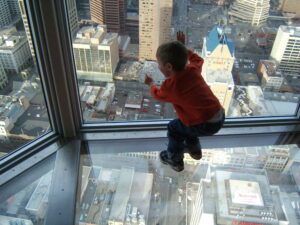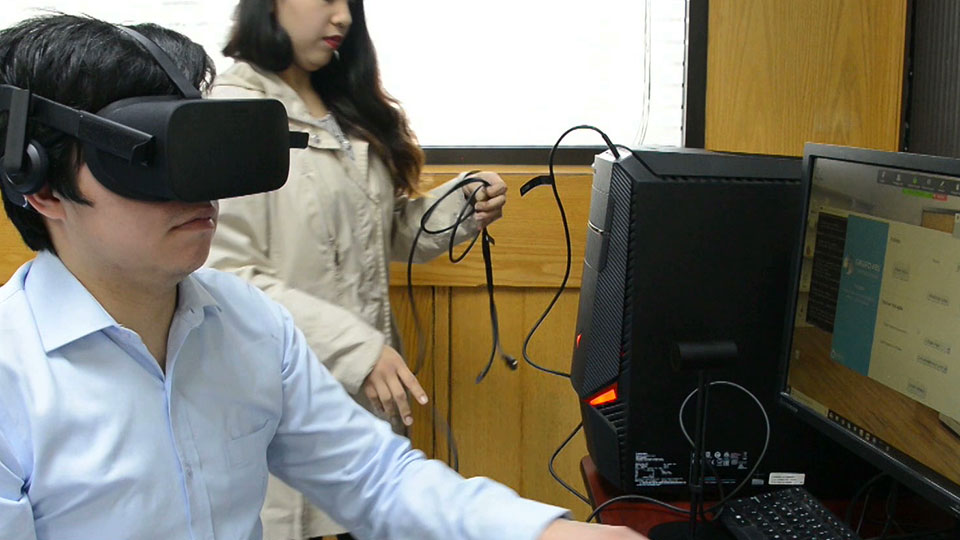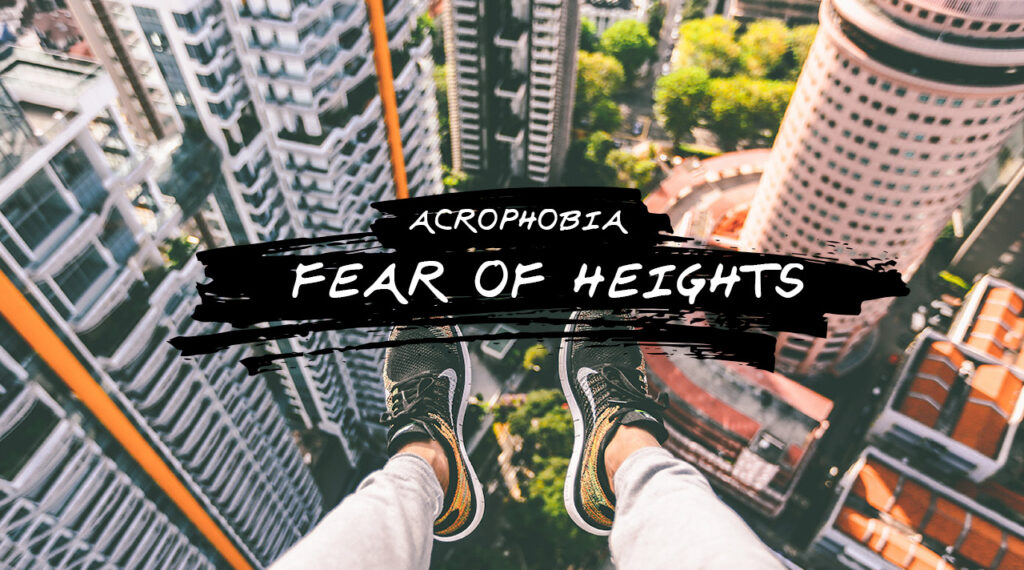Do you have a fear of heights? If so, you’re not alone. Many people are afraid of heights and for good reason! Heights can be dangerous if you’re not careful. But that doesn’t mean that you can’t conquer your fear. In this blog post, we will discuss tips and tricks that will help you overcome your fear of heights. We’ll also provide some helpful safety tips to keep in mind when you’re up high. So don’t be afraid – read on to learn more about conquering your fear of heights.
Contents
What Is Fear of Heights?
 Fear of heights is an intense fear of falling from high distances. This phobia, which is also called acrophobia, can have a significant impact on your life and your enjoyment of certain activities.
Fear of heights is an intense fear of falling from high distances. This phobia, which is also called acrophobia, can have a significant impact on your life and your enjoyment of certain activities.
This fear is also called acrophobia. This is a Greek word that means “height” and “fear.” This phobia causes people to have an intense fear of falling from high places, such as bridges or skyscrapers. People with acrophobia may also avoid activities like rock climbing, skiing, or using ladders because of their fear of heights.
People with this phobia often have panic attacks when they are in situations where they feel trapped on top of high buildings or mountains. These panic attacks can be so severe that the person becomes completely immobilized due to extreme anxiety over their situation. In addition to the physical symptoms associated with this disorder (which include sweating, trembling hands), many individuals who suffer from acrophobia feel as though they have lost control over their lives.
Signs of Fear of Heights

There are many signs that can indicate that someone is afraid of heights. Some common symptoms of this phobia include:
Avoiding Activities
This sign often manifests as a person avoiding activities that might involve being in high places. For example, someone with acrophobia may not want to go on a roller coaster or visit a tall building.
Physical Symptoms
People who are afraid of heights often experience physical symptoms like sweating, trembling hands, and an increased heart rate when they are in situations where they feel unsafe or uncomfortable.
Panic Attacks
Many people who suffer from fear of heights will experience panic attacks when they are in high-stress or dangerous situations. During a panic attack, the person may feel like they are having a heart attack and may become completely immobilized out of fear. Sometimes, people who suffer from this phobia may also experience chest pains and dizziness.
Anxiety
This fear can often cause a great deal of anxiety in people who suffer from it. This anxiety can be so severe that it interferes with the person’s daily life and activities. It also prevents them from enjoying things like family vacations or other social situations. This anxiety may also lead to other mental health problems like depression or substance abuse.
Depression
People who suffer from acrophobia often suffer from depression. This can be caused by their inability to do things that they used to enjoy because of the fear associated with high places, or it could just be a product of their constant anxiety over falling and hurting themselves when they are in these situations.
Substance Abuse
Fear of heights is one of the most common phobias among adults in America today. As such, many people who struggle with this disorder choose to numb their feelings and self-medicate with alcohol or drugs after experiencing panic attacks while on top of tall buildings or mountainsides. These substances only heighten the risk for injury, though, so this is not a good coping mechanism for people with acrophobia.
Constant Fear
Sometimes, people who are afraid of heights live in a constant state of fear. This means that they are always anxious and worried about being in high places, even if there is no danger present. This can be very disruptive to their daily lives and can lead to other mental health problems.
Causes of Fear of Heights
There can be many causes and triggers for fear of heights. Some common reasons include:
Genetics
Genetics always plays an important role in the development of this phobia. People who have a family history of acrophobia are more likely to develop it themselves, especially if they grow up seeing their parents or relatives experiencing panic attacks while on top of tall buildings or mountains.
Childhood Trauma
Sometimes, people develop this fear after experiencing a traumatic event in childhood. For example, if they fell from a tree or off of their roof while they were growing up, it is more likely that they will experience panic attacks when on top of tall buildings later in life.
Anxiety
Some people are just naturally prone to anxiety and have severe reactions to stressful situations. These individuals may be more likely to develop acrophobia because of the high levels of stress associated with being in high places where there is always some risk involved.
Bad Experiences
Sometimes, people develop this fear after having a bad experience in a high place. This could be anything from getting lost while hiking to witnessing someone else have a panic attack at the top of a tall building.
Treatment for Fear of Heights

If you suffer from fear of heights, there is help available. Treatment options include:
Therapy
Cognitive-behavioral therapy (CBT) is often used to treat phobias like acrophobia. In this type of therapy, the therapist will work with the person to identify the thoughts and beliefs that contribute to their fear and then teach them how to challenge these thoughts effectively.
Medication
In some cases, medication may also be prescribed to help people manage their anxiety and panic attacks. This could include antidepressants, anti-anxiety medications, or beta-blockers.
Exposure Therapy
Exposure therapy is a type of therapy in which the person is gradually exposed to the thing that they are afraid of. In the case of acrophobia, this would involve gradually increasing the height of the places where they are allowed to be. This can be done with the help of a therapist or on your own with self-exposure exercises. Sometimes, people find it helpful to use virtual reality exposure therapy, which allows them to experience high places without having to actually be in a dangerous situation.
Support Groups
Finally, support groups are a great way for people with a fear of heights to connect with others who understand what they are going through. This can be very helpful for managing the condition and feeling less alone. This also allows people to share tips and tricks for coping with fear.
How To Manage Fear of Heights?

There are many ways that people can manage their fear of heights. Some tips include:
Avoiding High Places
If you are unable to conquer your fear of heights, it may be best to avoid high places altogether. This means avoiding tall buildings, mountains, and anything else that could trigger a panic attack or increase your anxiety levels. Sometimes this is not possible, especially if you work or live in a high-rise building, but try to stay away from the edge of balconies and other places where there is a lot of open space.
Using Anxiety-Reducing Techniques
There are many techniques that can be used to reduce anxiety and panic attacks. Some people find it helpful to practice deep breathing exercises or progressive muscle relaxation when they feel anxious. Others find that self-talk or positive affirmations help them to feel more confident and calm in high places.
Using Relaxation Techniques
When in a high place, it is important to use relaxation techniques to keep your anxiety levels under control. This could involve deep breathing exercises, visualization exercises, or muscle relaxation techniques. Sometimes listening to calming music or focusing on a mantra can also help to reduce anxiety.
- distracting yourself with things like counting, taking photos, or watching the scenery below.
- remaining focused on your surroundings and keeping an eye out for anything that could cause you alarm.
Having Someone With You
If you are not able to avoid high places, it is always good to have someone with you who can help keep you calm and relaxed. This person could be a friend or family member, or even a therapist. This also gives you someone to turn to if you start feeling anxious or panicked.
Making Progress Gradually
If you are working on overcoming your fear of heights, it is important to make progress gradually. This means slowly increasing the height of the places where you are allowed to be and taking things at your own pace.
Challenging Negative Thoughts

In order to overcome your fear of heights, you need to challenge the negative thoughts and beliefs that contribute to it. This could involve identifying them, challenging them, and replacing them with more positive thoughts. It can also involve challenging your beliefs about what could happen if you were to fall from a high place.
Writing it Down
One way of overcoming your fear of heights is to write down how you feel when you are on top of something high. This can help identify the negative thoughts and feelings that contribute to your anxiety, as well as any irrational beliefs that may be contributing to them.
Facing Fears
Sometimes the best way to overcome a fear is to face it head-on. This could mean gradually increasing the height of the places where you are allowed to be or doing exposure therapy with the help of a therapist. Sometimes you may want to do this on your own by challenging the thoughts that contribute to your fear of heights.
Conclusion
Fear of heights is a real phobia that affects many people in their lives. If you are someone who suffers from acrophobia, there are ways to overcome it and live without fear! Fear is an emotion caused by the anticipation or threat of danger; however, not all fears lead back towards safety like other animals’ instincts would have told them before taking action. Some may override their body’s response with rationality while others succumb fully into panic attacks when confronted with situations where they feel out-of-control – either way, these feelings affect quality living for those suffering from Acrophobia (fear), Agoraphobia (fear of open spaces), Claustrophobia (fear enclosed spaces) and Monophobia (anxiety).
The root cause can be traced back to childhood trauma or even genetic predisposition; however, there is hope for those who suffer! With proper diagnosis by medical professionals such as psychologists or psychiatrists, one can begin treatment through therapy sessions where they will learn coping mechanisms while changing their negative thoughts into positive ones over time.
A Word From Therapy Mantra
Your mental health — Your psychological, emotional, and social well-being — has an impact on every aspect of your life. Positive mental health essentially allows you to effectively deal with life’s everyday challenges.
At TherapyMantra, we have a team of therapists who provide affordable online therapy to assist you with issues such as depression, anxiety, stress, workplace Issues, addiction, relationship, OCD, LGBTQ, and PTSD. You can book a free therapy or download our free Android or iOS app.


